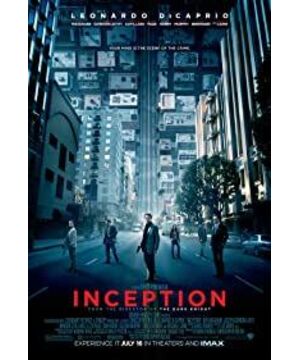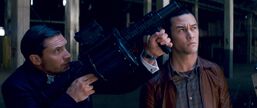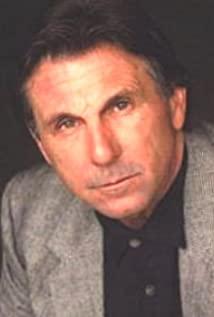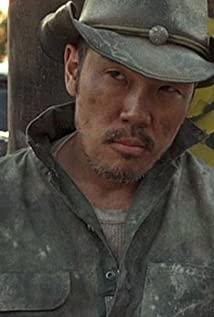"Inception" is the same as "Avatar". There is no publicity before the release, and it can only rely on extremely rare connotation and word of mouth to strongly promote word-of-mouth communication. These two are the trampler of the "domestic blockbuster", and the trampled may have nothing to do with it, because they lack the ability to resonate the most widely.
It is really difficult to achieve "broad resonance"! People like me who think they are unpleasant, what they love most is watching movies with a magnifying glass, and when they see something unpleasant, they jump out and scold them, thinking they are gods. There are a lot of people who watch movies like this. What we ask for, what we ask for is our confidant, what we ask for is the escape from reality, what we ask for is that we finally find a bright spot in the hundreds of bad movies that makes us cool, and then He tearfully shook the hand of the imaginary director and said "you know me".
This time Nolan really caught everyone's most intimate itch. When we were young, each of us had some unrealistic ideas about the world, and we often thought that only we had them. When I was young, I would enthusiastically think about what dreams were, and as I grew up, these thoughts were enlightened one by one and buried alive in the dusty corner. The head that was thinking about dreams now only thinks about payroll. For a commercial movie to resonate, it is to dig out the dust in these corners and tell you clearly that you didn't think wrong when you were a kid, and what the adults tell you is fake! Prince Charming is there! There are big alien villains! There are super invincible heroes! Let a group of people in the dark room, grinning and drooling, all have a dream that was never actually touched in childhood. This is the deity of commercial movies, and this is the nobleness of commercial movies!
A nation that can't dream is not creative. How can a "cultural empire" that can't create dreams create the future?
The nonsense is over. The feature film begins.
[Concept] If you
watch too much, movie fans will notice: Almost all the core concepts of "Inception" are not new things.
There are a lot of interpretations of the rules of "Inception of Dreams" by the online masters, which accounted for the vast majority of film reviews, and even many masters drew structural diagrams, and what happened in each of the several layers of dreams was clear at a glance, just search and see. Look, you can roughly understand it. So many people began to struggle, how many levels of dreams are there? What does the final ending mean? Then I looked for a lot of evidence to prove, what ring theory, father-in-law conspiracy theory, wonderful. But I would like to persuade you, really don't worry about it, or you won't see the true beauty of this movie. Why? Because such entangled things are not unique to this movie. If this movie opens a door for you, then take a good look at the other things in the house if they are equally fascinating.
You like the brain in the bucket, agnosticism-"Thirteenth Ladder", "X Touch", "Total Recollection", "Wonderful Fantasy", "Solaris", and even "The Matrix".
You like to watch N RPG stories in a movie-"Transferring City", "Butterfly Effect", "Laura Run".
Do you like the subconscious mind-take a look at Haruki Murakami's novel "The End of the World and the Cold Wonderland", there are small towns at the end of the world that can’t go out, and there are symbolists and calculators in the cold wonderland about the code hidden in the human mind. Bloody scramble.
You like the unlimited enlargement of virtual time-this year there are two issues of "Science Fiction World Translation Edition", there is a long story "Duplicate", which contains virtual interrogation. Those who like anime will never forget Itachi’s "Monthly Reading" in "Naruto"; earlier, it was the temple of the gods in "Dragon Ball"; for those who like horror manga, Junji Ito talks about a person’s dreaming more and more. The longer the short story, I have forgotten the name, but the ending looked terrifying and wonderful. To be more extreme, you remember that when you were a kid, there was an episode in "Slam Dunk" called "Mukiki's Perseverance", and the whole 20 minutes tells about the 5 seconds from Muki, from catching and shooting to scoring.
You like dreamy mazes-well, if you are not satisfied with Escher's paintings, you can also come to me.
To enumerate all kinds of people is not to belittle "Inception", but to sublimate "Inception". Among all the literary works with these wonderful concepts, only "Inception" has become the most popular carnival. Why? Because "Inception" has achieved the extreme of a science fiction movie: creating a series of extreme concepts, then expanding an extreme script around this concept, and finally expressing it in an extreme way. How extreme is it? No one can get in. "Inception" is a typical Nolan-style movie. It is really a perfect one. There is no thread exposed. The sequel cannot be inserted or taken out. Someone saw the top not turning at the end, saying that this was foreshadowing the sequel. This is not right, there will be no sequel, even if it does, it is a "2010: A Space Odyssey" sequel, and it has no blood relationship with "2001: A Space Odyssey".
What is a typical Nolan movie? In other words, the theme of this movie is A, its expression is A, the movie itself is also A, and it is A from the inside to the outside. Of course no one understands this. The example may be a bit more vivid: "Shards of Memory", the theme is a story about a person who will always remember only a few minutes, and its structure is also a few minutes and a bridge backwards or forwards, and finally the movie itself It has become a journey for the audience to experience "short-term memory loss". To give another example, "Deadly Magic", the theme is magic, the structure is edited according to the magic method to confuse the audience, and finally there is a shocking secret, the magician lights up his trump card. Now finally ushered in the third typical Nolan-style movie "Inception" in history: the theme is a dream, and the plot is a dream. In the end, the audience once again suddenly realized: Oh, are we dreaming?
Focusing on the theme of dreams, Nolan did his homework and added detailed settings comparable to "The Matrix" in the settings. The source of the setting is not a wild imagination, but a down-to-earth life experience. It is for this reason that it can gain widespread resonance from the audience.
Setting 1: People often don't think this is a dream in a dream (unless they have received training). Everyone has experienced this, the so-called "pinch and try to see if you are in a dream" this stupid way, I have tried it myself, it's useless, and it hurts in a dream. This is a bit like Déjà vu. Dreams are also produced by the brain itself, and the brain has some ways to force you to believe it. This setting is the basis of the entire story of planting dreams.
Setting 2: The real environment will affect the dream environment. For a while when I slept, I liked to perform cross talks in the book studio. The scenes of my dreams a few times corresponded directly to Li Liqun’s lines. Whatever he said, the person in my dream would say anything. It’s amazing. Everyone has. You can try it if you are interested! The main contribution of this setting to the film is to provide visual spectacles, especially the two gravitational monsters in the hotel, which are so beautiful that I am full of joy and admiration!
Setting 3: Time in dreams is faster than reality. There is also a scientific basis for this. It is said that people have a dream for up to 20 minutes, but the dream does feel like a day has passed. This setting is precisely the most exciting setting of the film! Focusing on the technical details of time bonus, Nolan puts his feet on the play and created an invincible to rascal contradiction solution: if there is not enough time to solve a problem, then dive to the next level of dreams, if it is not enough, then again Next level. In the first dream of the film, a car falls from a 100-meter-high bridge into the water, but in just a few seconds, there are still so many plots. It seems that Nolan has become a montage school: the master of infinite delays. Although the infinite delay of streaming is often criticized, Japanese cartoons are the worst, but Nolan has the ability to be thrilling, and his skill is judged.
Setting 4: Choking or falling will make people wake up from the next dream. Although there is no surprise in the last part of the serial KICK, the momentum is like a rainbow, and it is extremely cool! As for the principle of KICK, you can search for the detailed analysis of the cattle, and I can't say anything.
Setting 5: Do not construct realistic memories in dreams. In the film, the handsome boy Arthur has an evaluation of Cobb: He teaches you not to do anything, and often does it by yourself. Indeed, when giving lessons to the little girl, Cobb taught the dreamer not to construct a whole reality scene based on memory, because it is difficult to distinguish between reality and reality. This is reasonable. The source of the tragedy between him and his wife is the imitation of reality in the Lost Territory. However, as we followed the little girl later, we saw that Cobb built his dreams according to his memory, and recalled the bit by bit before his escape. This elevator bridge is the only slightly horrible scene in the whole film. Combined with the non-stop ending of the final top, it adds a depth to the film.
Setting 6: Totem. Relying on the physical attributes that only the owner knows to distinguish between dreams and reality is really an ingenious and clever way! Haruki Murakami said in "The End of the World and Cold Wonderland" that any password can be deciphered, and the only reliable safe in the world is your own brain. But this setting is also flawed, that is, if someone targets the owner and steals the target's totem through inception (of course, before the target uses the totem to verify), then the totem is still reliable? It seems that it is necessary to take the totem to verify it at any time, just like when the computer always crashes, you have to save the work progress at any time.
In addition to the above 6 explicit settings, "Inception" also has many hidden settings, such as shared dream synchronization, mental projection, subconscious prevention, disguise and disguise, dream induction, etc., not only meticulous but also comprehensive. . Although these explicit and implicit settings are wild and unreasonable, they are not justified. What is even more commendable is professionalism. It is not only a major in film production, but also a major in setting. Since creating the profession of "Pirates of Dreams", their behavior, their expertise, their rules and boundaries, their unspeakable concealment, and their jargon and idioms are all developed in detail one by one, as if there is such a thing in the world. Professional, and creators really "under the grassroots" and they "experience life" for a year or a half. Before shooting "Lord of the Rings", Peter Jackson once warned the staff: "Our job is not to design Middle-earth, but to discover Middle-earth. The architecture, culture, and history of Middle-earth are all buried in the soil. We are not Artists who draw drawings, we are archaeologists who wield shovel.” This may be mysterious, but in Shanghai dialect, I’m afraid it means “make it look like a real thing.” Yes, it means “make it look like a real thing.” Only with the spirit of "the same", commercial films can get everyone's tribute.
[Difficulty]
Talking about how good a movie is, I think the most convenient entry point is to talk about where the movie is difficult to shoot. Nolan once again holds a big investment, but the subject matter is not as good as that of a public like TDK. The most difficult part is: how to prevent the audience from leaving the audience because they don't understand it?
Well, you can say, I am a Nolan fan and I will not retire. But my wife doesn't think so. After all, it was a two-and-a-half-hour movie that started at midnight. But after reading it, she challenged me and said: "Who said it's difficult to understand? I understand it all!" Ah, ah
, so Nolan!
I always believe that if you control the audience, you can dominate the movie world. I have a way for you to understand the part that should be understood by you once; I also have a way for the part that should not be understood by you to make you willingly spend money to watch it a second time.
Science fiction movies are especially difficult to control large audiences. Too metaphysical, it is difficult to convince the public; too metaphysical, it is difficult to catch people. "Inception" is a pioneering science fiction film, which promotes the concept of metaphysics; but the investment's thirst for the box office requires the film to be as metaphysically as possible and not to make the audience yawn. As a result, a pair of contradictions arises: Do I want to tell stories or rules? The story of the low-level director’s speech and the rules of the middle-level director’s speech can be told by the high-level director!
To resolve this contradiction, Nolan arranged these three things: cost, motivation and variables. These three things are used to tell stories, and Nolan now uses them to tell the rules.
The price provides plot tension. Motivation expands the depth of the character. Variables drive the development of the story. Watching any good-looking feature film, we will be led by these three things constantly, completing our dream journey again and again.
[Price]
Many people watched a bad movie and shouted "bad bad", but couldn't tell where it was bad. It's very simple, you just see if the movie takes the time to arrange the cost of the protagonist. If a movie is a big wandering ship, then the price is the anchor of the big ship, allowing the ship to dock in the hearts of the audience.
Buying a house requires repaying the mortgage, and loving someone must know how to pay. In our real world, the price has been clearly stated by the rules. However, many drama commercial movies don't know how to play with the price, and audiences don't pay much for it. For example, look at the 007 movies in recent years. Not only the box office but the word of mouth, then there are only two movies: "Golden Eye" and "Casino Royale". 007 is a second-rate movie series, because the two most high-end movies in this series are nothing more than the same second-rate commercial director. But in these two films, Martin Campbell only cleverly added a little bit of misery to make 007 shine and directly let Pierce Brosnan and Daniel Craig succeed. The element of this suffering is: 007 is no longer invincible, but miserable by a colleague or woman, not only dying, but also almost dying. This is difficult to see in the usual 007 series. For the same spy war movie, we watch the "Spy Shadows" series, the theme is loss and regain. Looking at the more extreme American drama "24 Hours", we all know that the invincible Bao Xiaoqiang will never die, but he still keeps sweating for him, because Baoer's price is all given out except for his life. We are very It’s hard to find someone who pays more than him-so even if he puts on an aura of invincibility, even if he represents the obnoxious American hawkish unilateralism, but when he walks out with scars at the end of the chapter In the picture, we will all cry from the heart to offer a sentence: GOOD LUCK, JACK.
Why is the price so fascinating? Because only it is the real sword of Damocles hanging over the head, and only it can provide dilemmas for the characters in the play and anxiety for outsiders.
The price is risk—whether or not the risk has become a danger. The simplest risk in the movie is death, but the hardest thing to compose is death. You see in an action movie the heroes keep rushing forward. If the cost is only the possibility of death, then you must have the level of Hitchcock to save the plot, otherwise it must be a bad movie-because the audience has long known it The protagonist will never die. Therefore, in addition to death, a more reasonable price must be arranged for the characters, so that the audience can know and imagine the possibility of another ending.
Back to Nolan's movie. He is probably one of the few screenwriters and directors who consciously adds cost factors to the plot. So he is the master of the plot "Zhang" and "Shou". From "Insomnia" and "Magic Way" to the two "Batman Prequels", the plots at the beginning are always open, the characters are more harmonious and well-off, the later the characters lose more, until the end there is almost nothing, the plot Shrink tightly to the last card for a big battle. The audience only needs more than half an hour to enter the play, and then it is difficult to come out.
Having said so much nonsense, then look at the price of "Inception". Hee hee, this is really the most elegant price I have ever seen! Gentleman like snooker, vigorous as classical music, vast as the Milky Way!
time. The core charm of "Inception" is time. This eternal ultimate question of mankind has turned into a cage of integrated cost in "Inception"!
After watching a lot of movies like "The Matrix", our first reaction is of course: if people die in virtual space, will people still die in reality? "Inception" made it clear from the beginning that people will not die in reality, but will wake up. Seeing this, I cried with a headache: at the price of such harmony, it is no wonder that the domestic movie has not been cut! In Nolan's cost coordinate system from "zero" to "positive infinity", the entry point of the interval is hit "zero", how can this be fun!
Immediately after "Inception", another setting was added to the "teaching chapter": because the function of the human brain is more active in sleep, one hour in a dream is only equivalent to five minutes in reality. I cried again with my headache: Nolan, you have solved the problem of mankind's pursuit of longevity for thousands of years! The answer turned out to be "dreaming", isn't this kind of pun just teasing us!
After such a harmonious and joyful pre-setting, the film's discussion of time has gradually moved in a deeper direction. Because of the task requirements, the dream must have three layers, which requires the pharmacist to prepare a special tranquilizer so that the dream will not collapse. In the dark basement of the pharmacist, an old man murmured, "They are not here to dream, but to wake up." This warning is rather ominous. We soon learned that under the effect of tranquilizers, people do not "float up" but "sink down" after death in a dream. Where did it sink? The so-called "LIMBO" is the lost domain, the edge of the subconscious, the land of no one, chaos and disorder, and time flows eternally in it. It may be difficult to understand, using the lines in the play to explain it: the best case is that "the old soul returns to the young body"; the worst case is that the human consciousness will be in the lost domain "lonely and die, regretting life," Eventually lose all the memories of reality".
Well, at this point, Nolan finally hit "positive infinity" at the out point of the interval in the cost coordinate system.
From "zero" to "positive infinity", countless possibilities are staged in this ray.
There is a "real desert" in "The Matrix" and a "cage of immortality" in "Inception". These costs are more attractive, not only because they can arouse people's imagination, but also have practical speculative significance-they are punishment in the eyes of some people, but pursuit in the eyes of others. Seifer, the traitor in The Matrix, is content with the "happiness of the ignorant" and prefers to stay in the virtual matrix and smoke a cigar to eat steak. Those who unfortunately fall into the lost domain in "Inception" can easily spend decades or even longer unconsciously because it is difficult to distinguish reality from dreams. People in real life wait until the tranquilizer has passed. When I wake up, I am afraid that my brain is either amnesia, madness, or muddy. However, as many similar movies and netizens have discussed together, who has a way to prove that he is not a "brain in a bucket"? Since ancient times, various religions have said that people go to heaven or hell after death, don't they mean a higher level of reality? The reality is unprovable, and the truth is unknowable. The key lies in whether you want it or not, believe it or not. Some people are willing to live happily at the age of fifty or sixty and die, and some are willing to live hard and want to take a look at tomorrow. Looking back at the Cobb couple, they lived in dreams for at least fifty years, at least "holding hands and growing old with them." Who dares to say that this is not a happy romance, but who dares to say that this is not tiresome and suffocating?
"Inception" talks about what seems to be a dream, but it is actually time. In the vast river of time, the meaning of life has gone through ups and downs.
The one I admire most in "Inception" is this old Saito. For an extremely remote and vague promise, he dared to blast his head with a gun in the Lost Realm. He really has the courage and courage of an entrepreneur! Returning to the real cabin, watching his first confused and then sober eyes, watching him call to fulfill his promises without saying anything, his character is good!
"Inception" is one of the most time-inspired movies I have ever seen. Some people say that "Inception" is not sci-fi enough. They say that because they only see an "Inception" is a sci-fi element, it is actually a crime movie dressed in sci-fi. That can put the cart before the horse. "Inception" is a science fiction film dressed in crime. It is set closely around the price of "time bonus" and explores the edge of all possibilities. In the vast river of time, love, family affection, memory, promise, eternal life... These common human pursuits have gone through ups and downs. Inception is re-examined from the perspective of science fiction, giving people magnificent imagination and giving people a magnificent imagination. With incomparable encouragement and encouragement (the end is definitely back to reality, don't despair and entangled because of such a small joke). At this point, I can't help feeling: "Inception" is the ultimate of a responsible blockbuster!
[Motivation] To
be honest, motivation is the weakness of Inception. There is no need for anyone to "have to do this." Cobb turned out to be just to go home to see the kids, well, he is Cancer. Others do it for money. Just for this, is it necessary to "live all the time"? This is a bit unreasonable.
Nolan's approach is simple and rude, which is to turn this motive into suspense, supplemented by the "butterfly dream mode" to accompany the development of the whole plot, not to give the audience the opportunity to question when watching the movie. What is "Butterfly Dream Mode", I will talk about it in the next section.
What's interesting is that the three motives in "Inception" that shouldn't have been paid attention to, but shine.
The three "motives that shouldn't have been paid attention to" are: the motives of the deceased wife Meiwu, the motives of the mapping Meiwu, and the motives of the rich second-generation Fischer. Features: It's all worth having fun.
The deceased wife Mei Wu is the real Mei Wu who has jumped off the building and died. Her motive was implanted, she suspected that the world was not real, and died by jumping off the building. All comrades controlled by the "brain in a barrel" theory will smile knowingly, and ordinary viewers who are not familiar with this theory may disdain this unrealistic motive until the end of the film is ridiculed by Nolan's top.
Mapping Mayu is the mapping image built up in Cobb's dream, and to put it bluntly, she is the one that Cobb dreamed of. Her motive is to hope that Cobb will stay in the dream and be with her forever (this can almost be done through dreams in dreams). But if you go deeper, you will know that this Meiwu's motive is actually Cobb's subconscious motive, because Cobb created her (nonsense). We can see from it: how deeply Cobb felt guilty for his deceased wife, and how deeply he missed her!
The best motivation is the motivation of the rich second-generation Fischer. We watched the whole process of the implantation of this "son destroying father's business" motivation. Have you ever reacted: Nolan, a kind person, in this movie about how to "implant motivation", he wrote so badly about other people's motives, and only cared about Fisher's motives. Why? This is obviously teaching us how to write a script! ! !
OK, let's imagine such a dialogue.
Producer: We want a story about the rich second generation ruined the father's foundation. You quickly erect the characters.
Screenwriter: What is "stand up"?
Producer: Just to give the characters a reasonable motivation.
Screenwriter: Because his son's surname is Li, his father is also surnamed Li?
Producer: This is too sensitive, and the political trial cannot be passed.
Screenwriter: Because his son took drugs?
Producer: This is too negative. The political trial cannot be passed.
Screenwriter: Because my son and dad fell in love with the same woman?
Producer: This is too Qiong Yao, the political trial cannot pass.
Screenwriter: Because the son is not his father's biological son?
Producer: This is too TVB, and it can't pass the political trial.
Screenwriter: Amnesia because of my son's car accident?
Producer: This is too Korean drama, and it can't pass the political trial.
Screenwriter: Then only let his son become a Lei Feng-like five-good youth, not relying on his daddy, and dedicated to the motherland and the people.
Producer: That's it!
[Variables] When
I wrote "Avatar", I praised the "apprentice mode". This is really a tried-and-tested and cost-effective mode. Nolan’s application is even higher than before: if the apprenticeship of "Avatar" and other movies is to let the audience understand the rules, then "Inception" is also to make other foreshadowings-this rule I set up in the future The story will be subverted.
This breakthrough was based on the consideration of the film genre. In other words, because of the complexity of "Inception" as a genre, two classic story modes were successfully integrated, making this film unexpectedly good-looking.
The most common usage of "apprentice mode" is in science fiction movies, where the apprentice is the protagonist. For example, Neo was constantly told that he was the "savior" when he was an apprentice in The Matrix, and then he discovered himself and really became the savior. This is based on the "saviour" model. The same goes for "Avatar", the story of Trukmektor Knight is to pave the way for the birth of the "Savior".
However, "Inception" is not only a science fiction film, but also a crime film. The protagonist is not actually a good person, at least not pure. Therefore, the "apprentice mode" of the sci-fi genre encounters the "bandit mode" of crime movies, that is, the "plan-execute-change-restrain-escape" mode. The most important thing in the "bandit mode" is the conflict between the two links of "plan" and "change." Therefore, Nolan, as a screenwriter, has cleverly integrated the entire "apprentice mode" into the "plan" link of the "bandit mode", let the "change" link defeat the "apprentice mode", and then let the "apprentice" be integrated. Solve the "response" link, and finally the chain KICK everyone successfully "escape". This is why this time the apprentice is Lori and not the protagonist Cobb, because the "apprentice mode" serves the "bandit mode". To put it bluntly, the fusion of types is the jigsaw puzzle, and imaginative talents can fight it.
After talking about "Apprentice Mode" and "Robber Mode", I strongly recommend another mode: "Butterfly Dream Mode".
"Butterfly Dream Mode" is a name I gave myself, referring to "people who do not exist in the plot, but have a significant impact on the plot", a bit of Hitchcock's "Mugffin" meaning. What’s very interesting is that the most popular applications of "Butterfly Dream Mode" are all dead wives: Rebecca in "Butterfly Dream", Ikura in "EVA", Meiwu in "Inception"... …Probably the dead female protagonists are very popular! And the Eva in "Avatar". Other "Butterfly Dream Mode" variants, such as the demon Lord Sauron in "The Lord of the Rings" and Voldemort in "Harry Potter", are also the beginning of the dragon's end.
The beauty of the "Butterfly Dream Mode" has three aspects: First, the audience will be full of awe of the unknown; Second, according to the "absence" principle, logic can be explained "behind the camera", so it is very convenient to rely on the "Butterfly Dream" to create conflicts. ; Third, the entity is not there, the emptiness is there, the human face is not, and the suspense is there.
Making a "Butterfly Dream" in "Inception" is a time-saving and labor-saving approach, because Cobb's dead wife, Meiwu, has become a variable maker. She caused the Inception team at least four or five troubles in the plot. , The most powerful of which was killing Fisher in the ice bunker. In essence, Cobb's own subconscious is making trouble.
Various modes are easy to splice, but difficult to merge. Nolan boiled various ingredients over high heat, and then simmered slowly. The children playing in the mud, the blowing curtains and the sound of smashing the goblet are all abstracted as part of the nightmare of Cobb's dead wife, scattered in and out of the story, constantly creating ominous torture for the audience .
[Action]
The action scene in "Inception" may well explain what kind of director Nolan is. He is a director who is stronger than vision and weaker than action. When the action has visual novelty, he can create classics; when the action scene is just a routine, he can do nothing.
This started to appear in "The Dark Knight". The clown in the middle chases and kills Harvey Dent for a period of electric light flint, but in the end Batman's action design in catching the culprits in the building is very boring.
In "Inception", two extremes are taken. The weightless action scenes are blissful, and the serial KICK is constantly ingenious, but the lengthy snow chase is not even as good as the openings of the two films "007 Black Sun Crisis" and "True Lies".
When seeing these "mildly bad" action scenes, the mentality of our loyal fans may be like, the young boy accidentally saw his favorite beauty picking his nostrils, and unconsciously find all kinds of beauty for her. The reason, but I can't help but sigh secretly-why let me see it.
Compared with veterans such as Spielberg and Lucas, Nolan can be innovative and pursue, but it is under a lot of pressure. After all, Nolan is not the young man who made "Fragments of Memory" back then. He is responsible for hundreds of millions of investment and wishful thinking all over the world. Yes, we don't allow him to fail, otherwise what shall we look at?
Rating: 5.
From the absolute field of evarnold http://evarnold7.blog.163.com/blog/static/3435420920118300194081/
View more about Inception reviews











